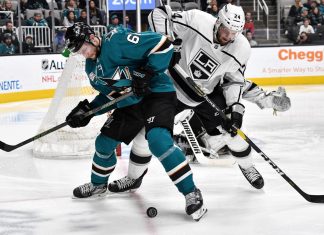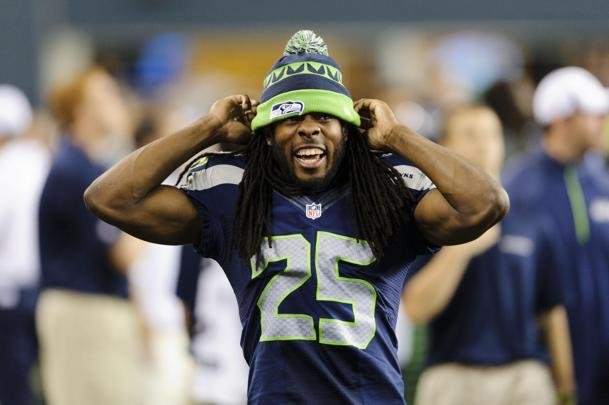BUFFALO, N.Y. (AP) A dreadful second-half free-fall led the Buffalo Sabres with little choice but to fire coach Phil Housley after his second year on the job.
The team made the move Sunday, a day after the Sabres closed their season with a 7-1 victory at Detroit.
Buffalo finished 13th in the Eastern Conference standings and joined the 2016-17 Philadelphia Flyers in becoming the second of 50 NHL teams to miss the playoffs in the same season they won at least 10 straight games.
The Sabres collapsed down the stretch by going 16-33-8 after a franchise-record-matching 10-game winning streak that ended in late November.
The 55-year-old Housley is a Hall of Fame defenseman who spent his first eight NHL seasons playing in Buffalo but failed to restore any semblance of success to a franchise that hasn’t won a playoff round since reaching the East finals in 2007.
Buffalo extended its playoff drought to eight seasons, which now stands as the NHL’s longest active streak after Carolina qualified for the postseason this year.
Overall, Housley finished with a 58-84-22 record in Buffalo.
He remained upbeat through the final week of the season and told reporters Saturday he expected to return next season.
The Sabres’ victory at Detroit ended a 0-12-2 road skid, which matched the second-longest in franchise history. Before winning its final two games, Buffalo went nearly four months without winning two straight.
But Housley’s fate was essentially sealed during a 0-6-1 skid in early March during which Buffalo was shut out in three consecutive games.
The slump began a little over a week after general manager Jason Botterill backed Housley by saying the team had made progress and added: ”There’s not going to be a coaching change.”
Botterill is scheduled to speak to reporters later Sunday.
Now the Sabres are embarking on a search to hire their fifth coach in six years since Lindy Ruff was fired amid the lockout-shortened 2012-13 season.
Housley replaced Dan Bylsma, who was fired along with general manager Tim Murray in April 2016, after Sabres owner Terry Pegula complained the team lacked discipline, structure and communication.
Much is still lacking in Buffalo despite the presence of two key building blocks in captain Jack Eichel and defenseman Rasmus Dahlin, the first player selected in last year’s draft.
Housley essentially ran out of answers after referring to the Sabres as being ”soft” while closing a seven-game homestand with a 3-3-1 record following a 6-2 to loss to the New York Rangers on Feb. 15. The Sabres lacked secondary scoring beyond star Eichel and Jeff Skinner, and they failed to respond to an ongoing series of line shuffles and benchings.
Sabres’ fans began turning on Housley over the past month. A loud chant of ”Fire Housley!” went up during a 4-0 loss to Columbus on March 31.
Asked how much the string of losses was wearing on him following the game, Housley responded: ”It’s frustrating. I understand the fans’ frustration. Guys are frustrated. …. It’s always difficult when you don’t get the results.”
Housley’s first season was also a bust. He oversaw a high-priced and underachieving team that became the league’s first to finish 31st in the standings, following the addition of expansion Vegas.
Immediately following the season, since-traded center Ryan O’Reilly publicly acknowledged he had lost some of his passion for hockey and that a losing culture had crept into the Sabres’ locker room.
Housley attempted to address his team’s fragile culture by spending the offseason holding a series of what he called open discussions with the team’s leadership core of players. The offseason cleansing led to Buffalo jumping out to a 17-6-2 start before the team began to unravel.
Housley’s largest failure was an inability to have the Sabres adapt to playing the creative, high-tempo style that relied on defensemen in jumping into the rush. It’s a system he helped develop during his previous four seasons in Nashville, where Housley was responsible for overseeing a Predators defense that included P.K. Subban, Roman Josi and Ryan Ellis.
Not all of the Sabres’ troubles fell on Housley, because he and Botterill inherited a franchise that lacked organizational depth and had a top-heavy salary structure.
Housley broke in with the Sabres as an 18-year-old after being selected with the sixth pick in the 1982 draft. He played for seven other teams, including Toronto, before ending his 21-year career by playing one game for Toronto near the end of the 2002-03 season.
Housley, who is from St. Paul, Minnesota, finished with 338 goals and 894 assists for 1,232 points in 1,495 career games. He ranks 39th among all players in points, fourth among defensemen and first among U.S.-born defenseman.
—
More AP NHL: https://apnews.com/NHL and https://twitter.com/AP-Sports
25% Bonus via Western Union























